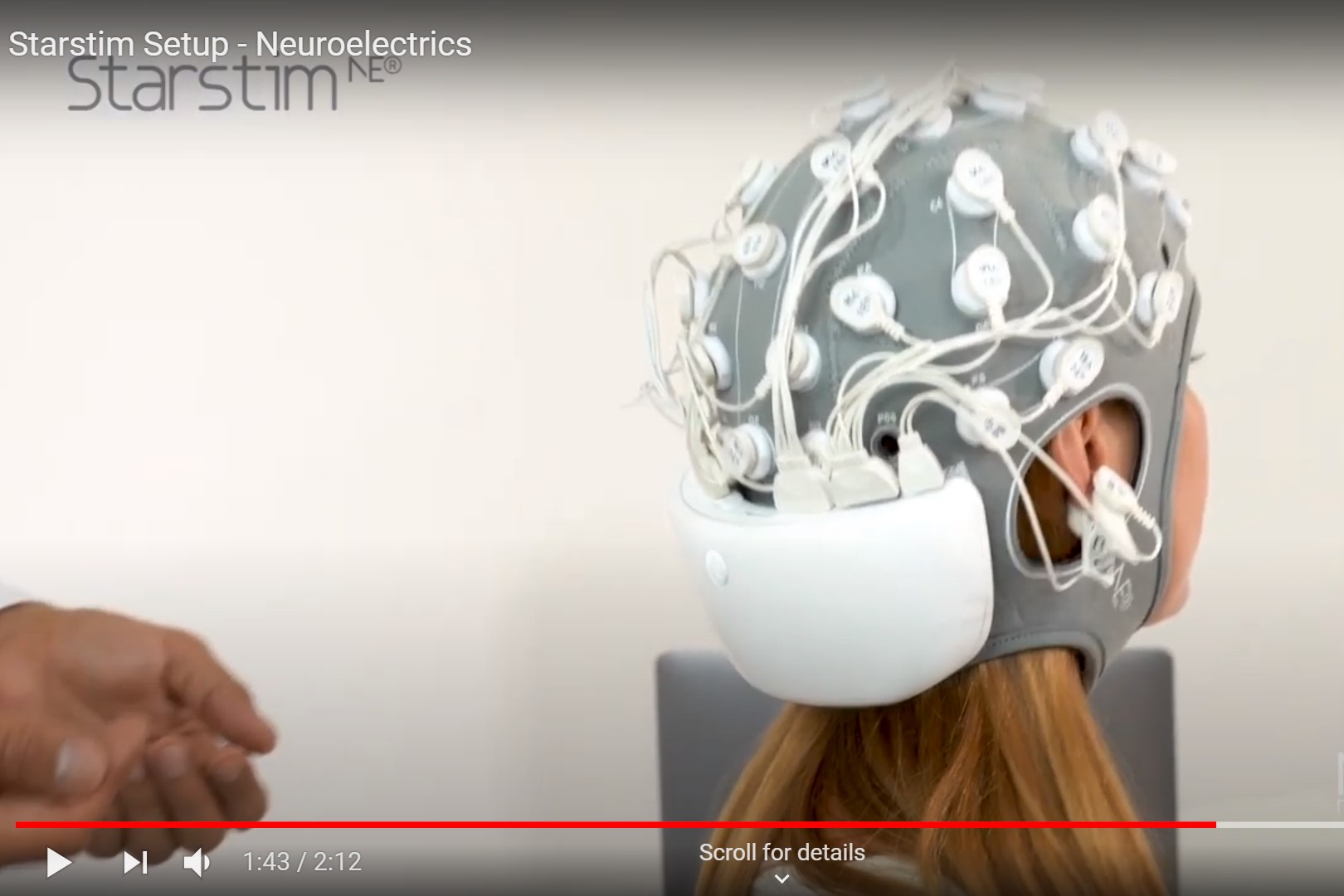
Epilepsy drugs currently available don’t work for all patients and while electric stimulation offers another option to reduce seizures, it’s an invasive one. Startup Neuroelectrics is developing a less invasive brain stimulation approach and it has raised $17.5 million as it heads toward a pivotal test of its medical device.
The Neuroelectrics device consists of a cap worn on the head that delivers transcranial electrical stimulation. The device, called Starstim, is intended to be an alternative to deep brain stimulation, which requires surgery to place electrodes in specific locations in the brain.
Neuroelectrics, which is based in Barcelona and has U.S. operations in Cambridge, Massachusetts, said it recently completed a small pilot study evaluating Starstim’s ability to treat patients with refractory focal epilepsy—epilepsy that doesn’t respond to drug treatment. The open-label study enrolled 20 adults and children who were permitted to continue taking antiepileptic medication. Patients received the Starstim treatment for 10 sessions over the course of two weeks. The main goal was to show a reduction in seizure frequency in the eight weeks following the last treatment.
According to Neuroelectrics, patients in the pilot study experienced a median 44% reduction in seizure frequency compared to baseline. In four patients, the reduction in seizure frequency was greater than 75%. Neuroelectrics now plans to test its device in a larger, double-blinded study with a sham treatment as a control. The pivotal study is expected to enroll about 190 patients who will be randomly assigned to receive either Starstim or the sham treatment for 10 sessions over two weeks. Those patients will be followed for an additional 10 weeks. Like the pilot study, the main goal is to measure the change in seizure frequency.
In the U.S., Startsim is classified as investigational; in Europe, it is permitted for research use only. The device builds on Enobio EEG, an earlier Neuroelectrics product that was granted FDA clearance in 2017. Like Starstim, Enobio is a cap worn on the head. Electrodes in the device collect electroencephalogram (EEG) signals and transmit data, via WiFi, to a computer with the company’s software. The device is cleared for use by physicians in clinical settings; Neuroelectrics sells it for research purposes. Starstim includes the EEG components of Enobio and adds transcranial electrical stimulation.

A Deep-dive Into Specialty Pharma
A specialty drug is a class of prescription medications used to treat complex, chronic or rare medical conditions. Although this classification was originally intended to define the treatment of rare, also termed “orphan” diseases, affecting fewer than 200,000 people in the US, more recently, specialty drugs have emerged as the cornerstone of treatment for chronic and complex diseases such as cancer, autoimmune conditions, diabetes, hepatitis C, and HIV/AIDS.
Neuroelectrics is not the only medical device company trying to improve the way electrical stimulation treats epilepsy. Mountain View, California-based Neuropace has commercialized a device that monitors a patient’s brain electrical activity, analyzes it, and responds with personalized electrical stimulation that prevents seizures. In late April, NeuroPace’s IPO raised $102 million, which the company said it will use to expand its sales and marketing efforts and support additional R&D.
The pivotal study of Startstim in epilepsy is expected to start in the third quarter of this year. A separate pilot study is already underway evaluating the Neuroelectrics device in patients with major depressive disorder that has not responded to drug treatment. These patients are being evaluated in their homes. Neuroelectrics said the study was motivated partly by concern for patients who are candidates for other forms of neuromodulation therapy but might require an at-home alternative during the pandemic. The study is being conducted by investigators from Harvard University.
The funding announced Tuesday, a Series A round of financing, was led by Morningside Ventures. According to Morningside’s Stephen Bruso, the Neuroelectrics device could offer a way of overcoming the limitations of drug therapy.
“By approaching disorders of the central nervous system using the natural signaling of the brain rather than focusing on one target and one receptor, we believe the Neuroelectrics approach could succeed in indications where traditional pharmaceuticals have had limited or no impact,” Bruso said in a prepared statement.
Screenshot of YouTube video for Startstim medical device













